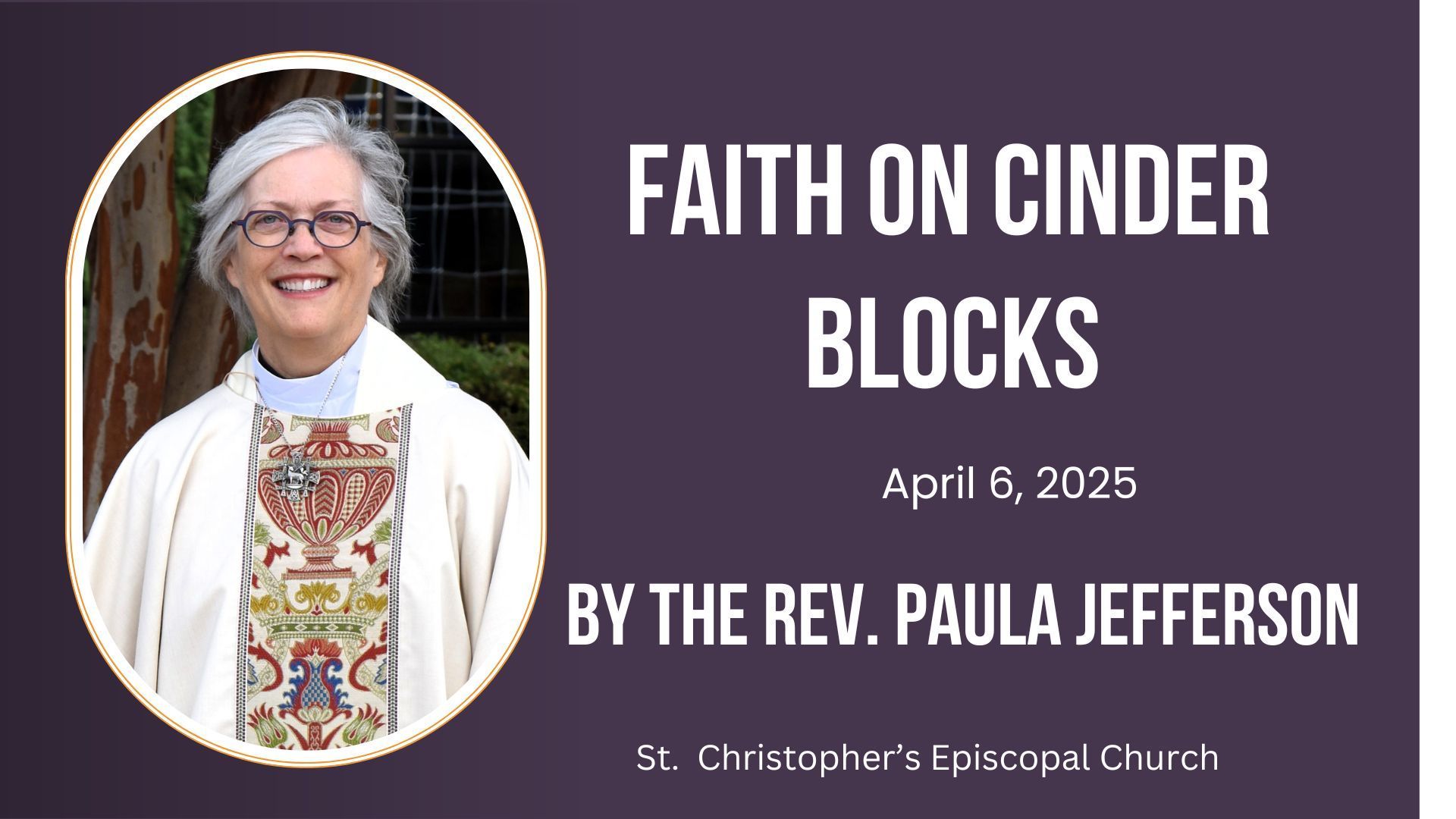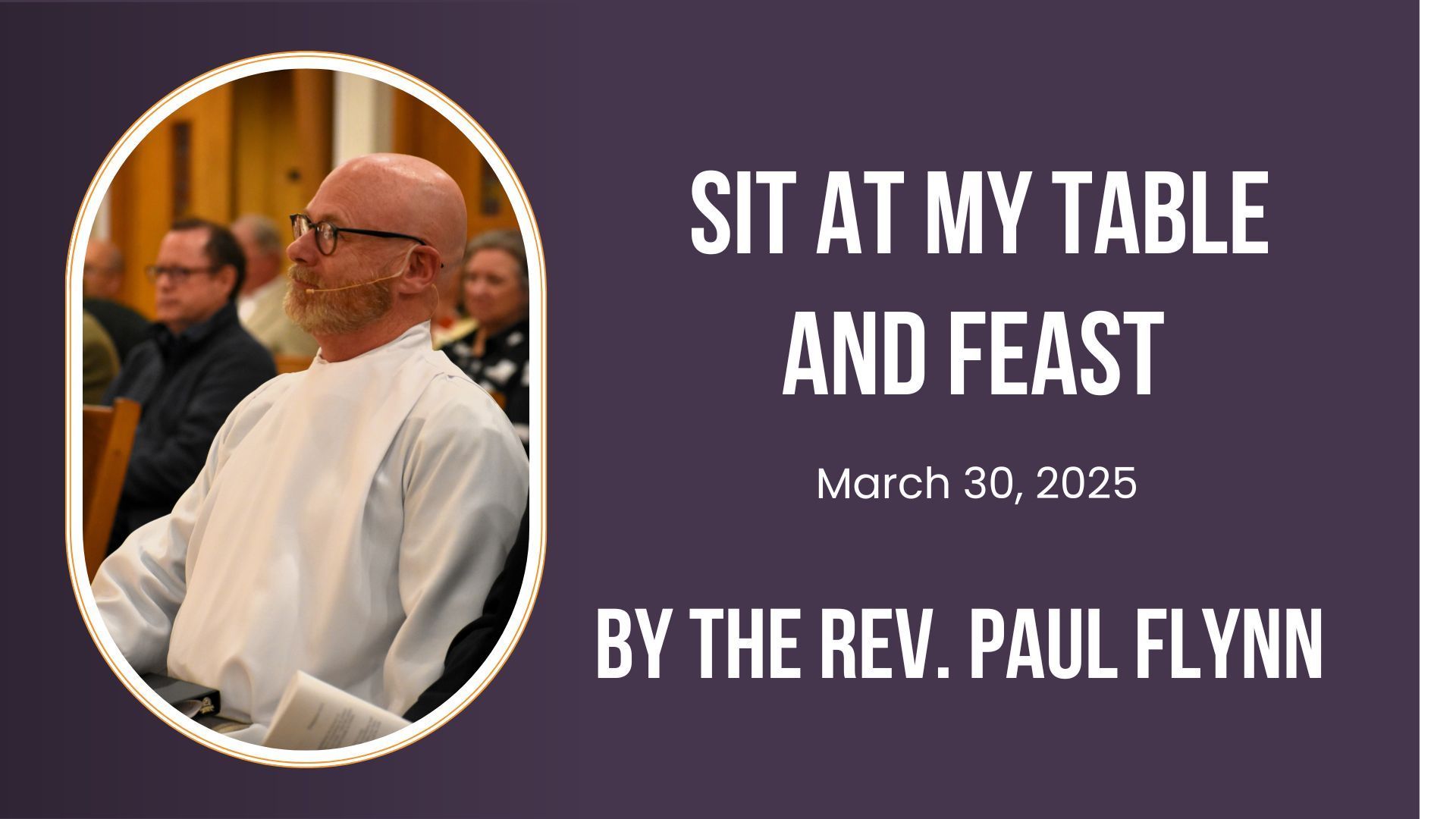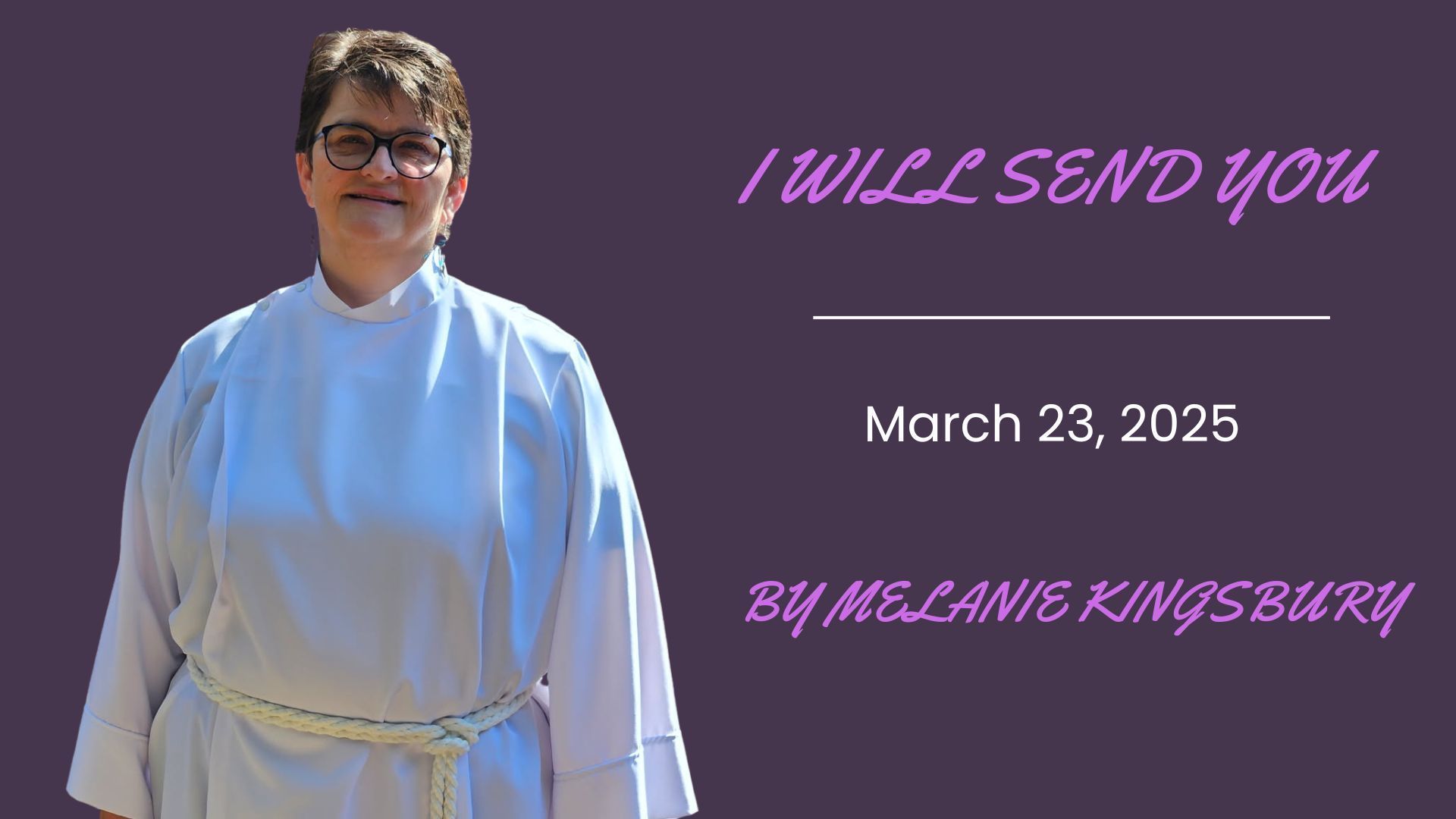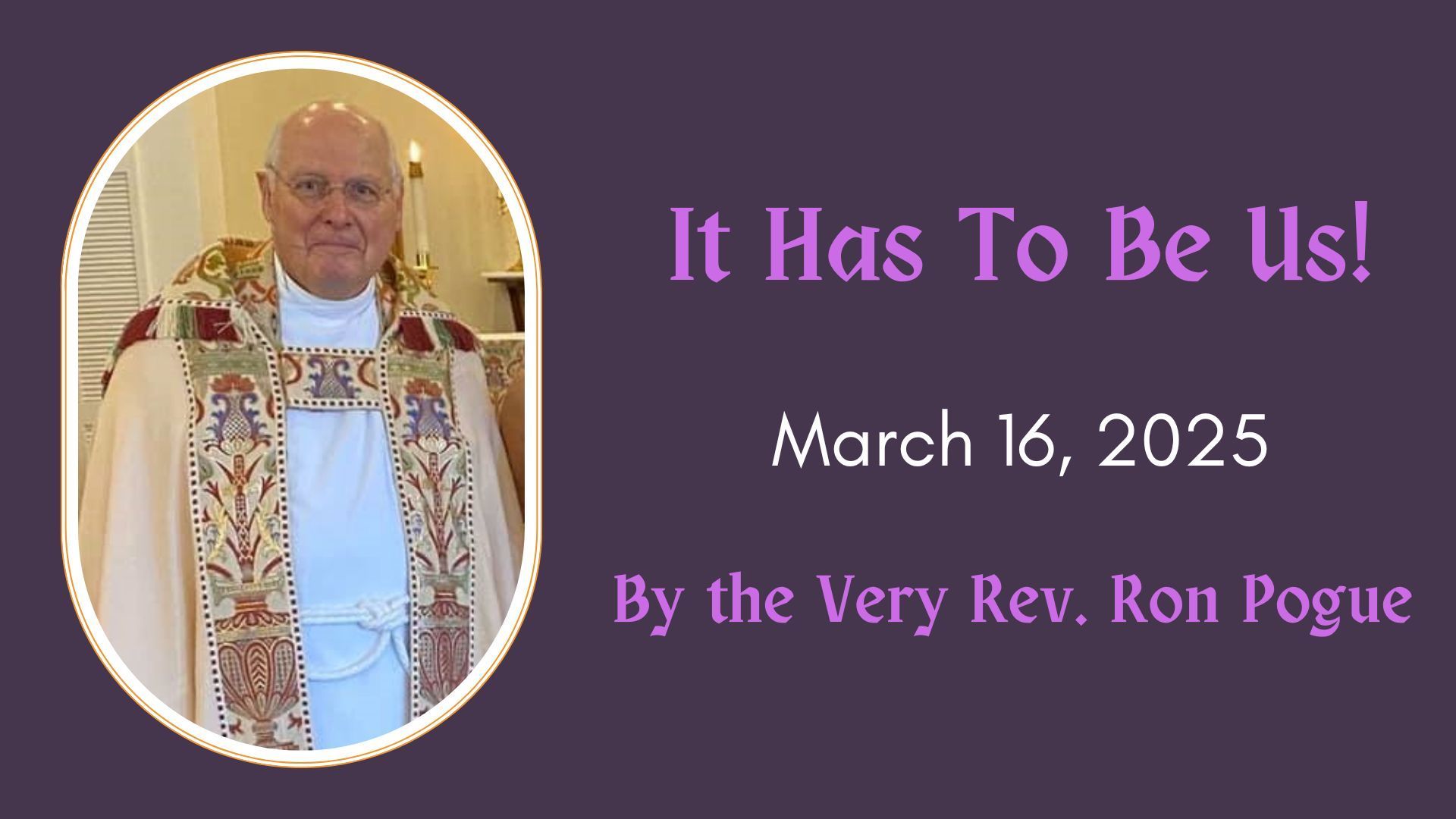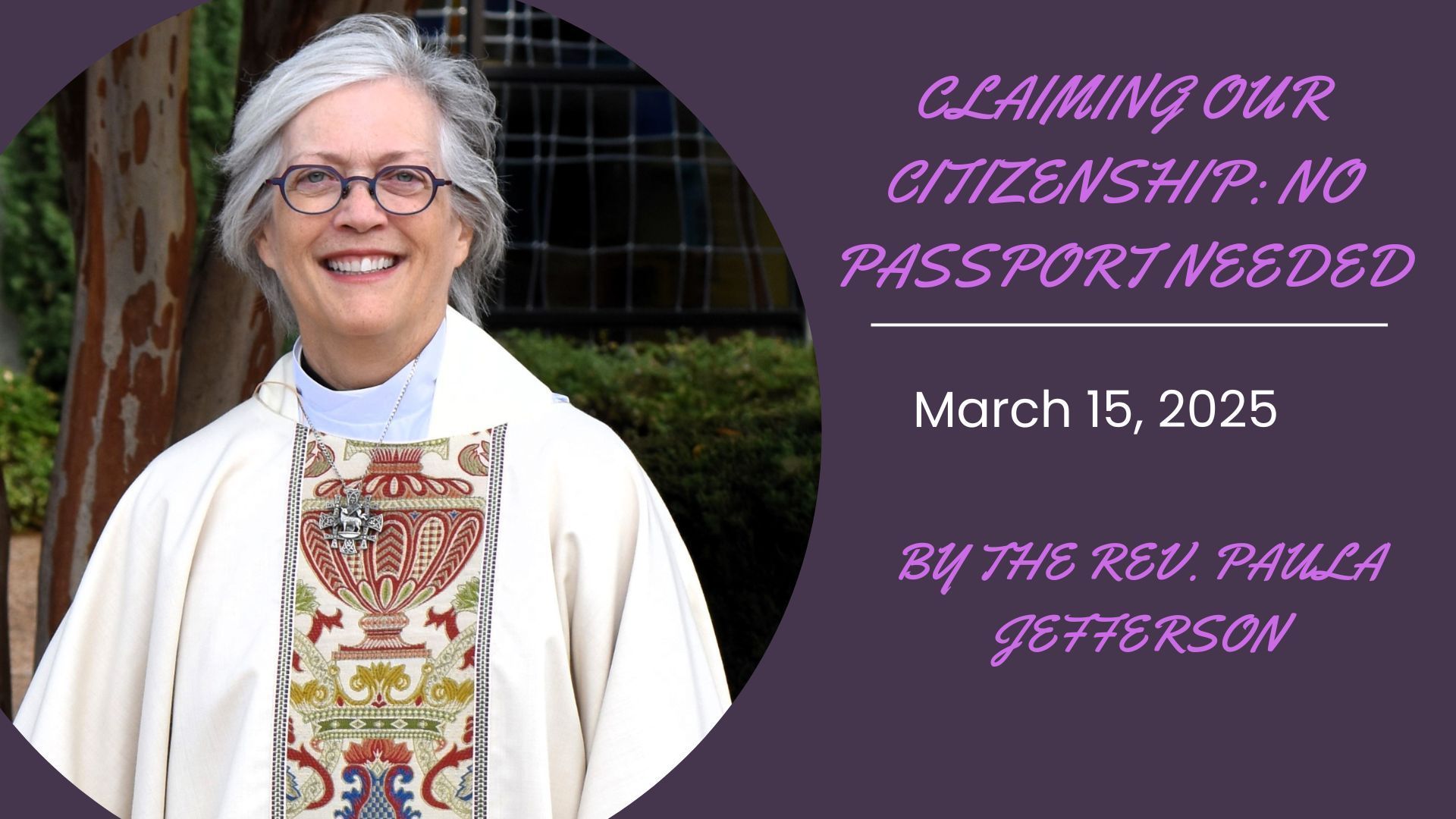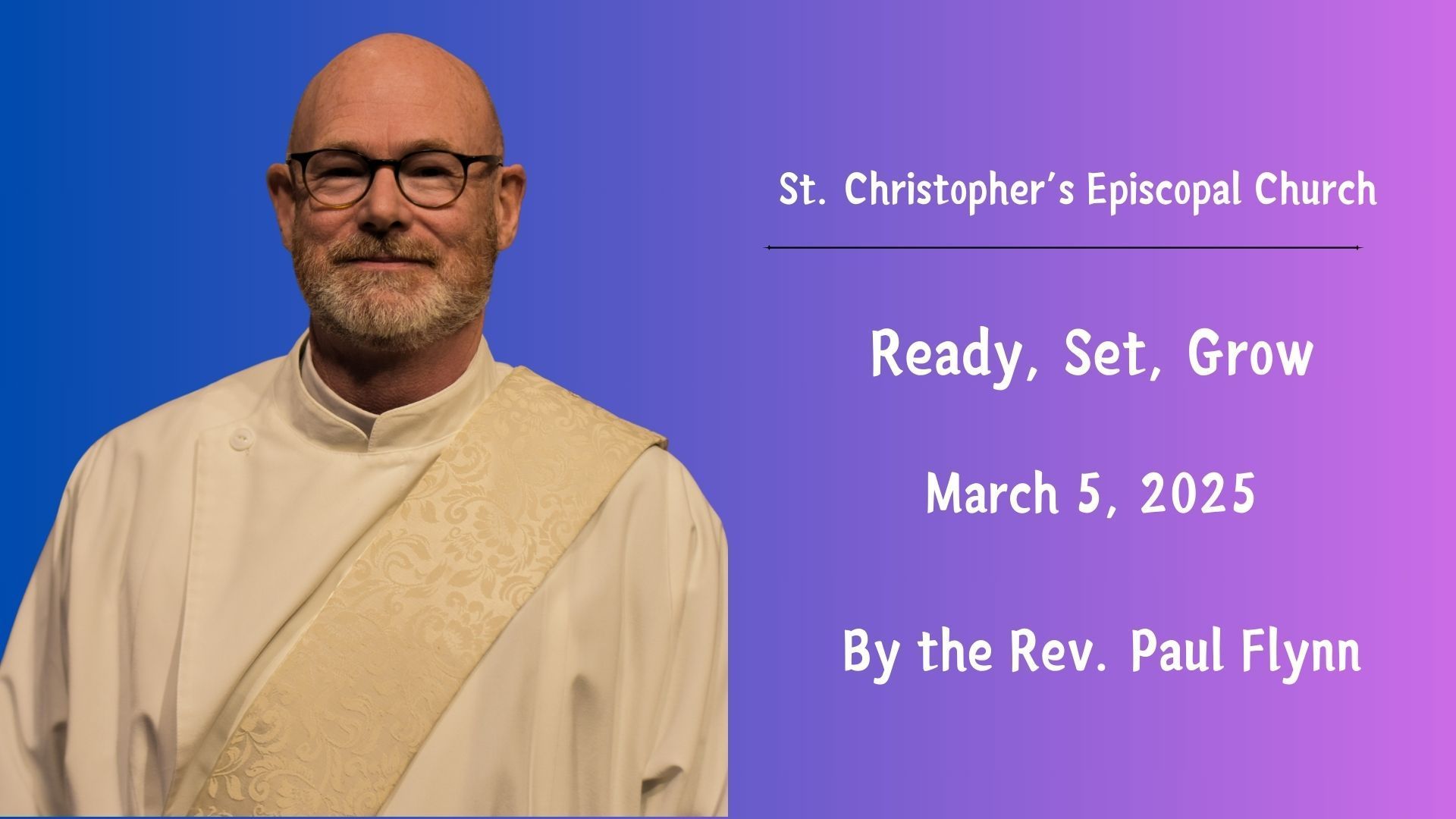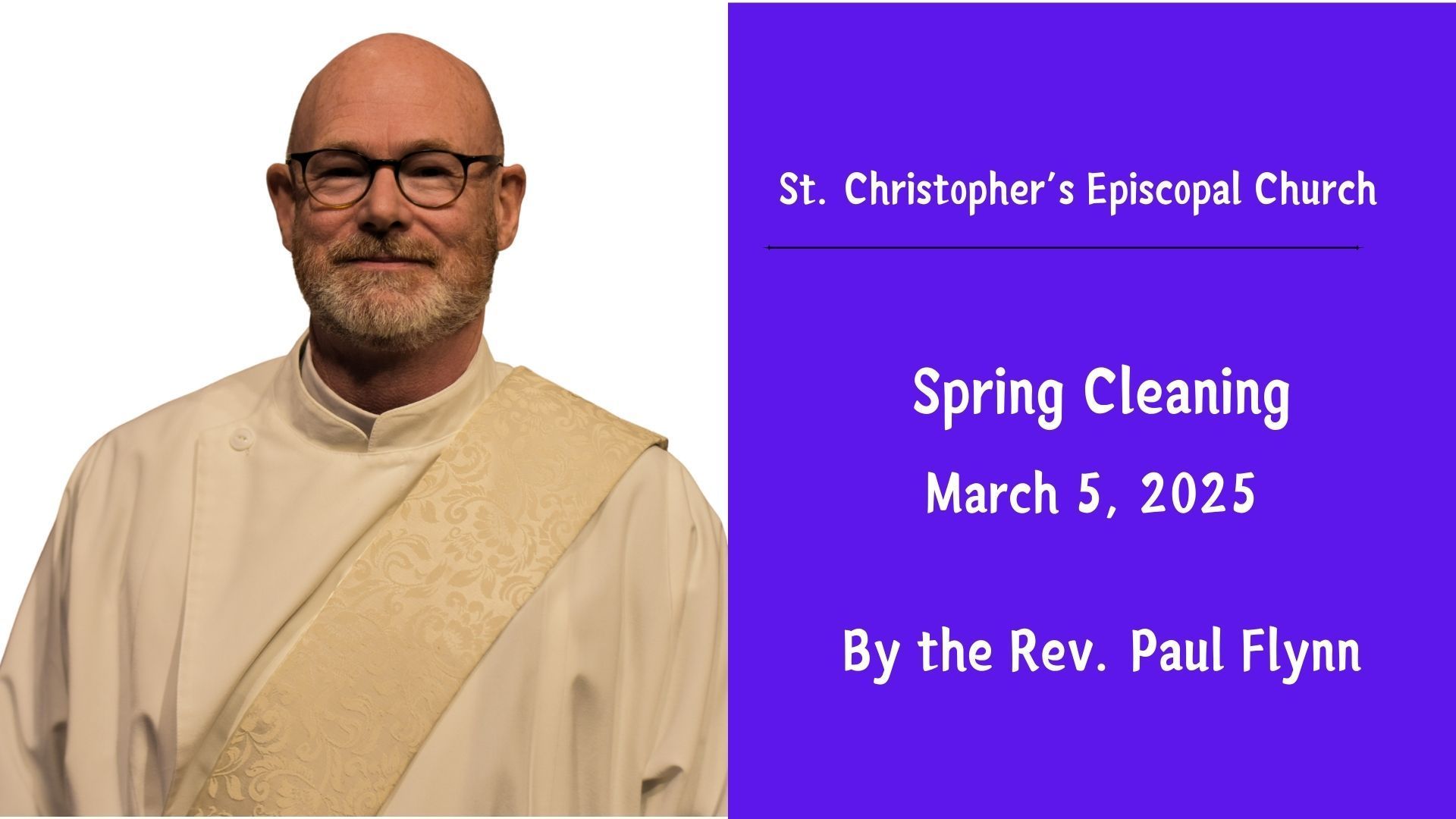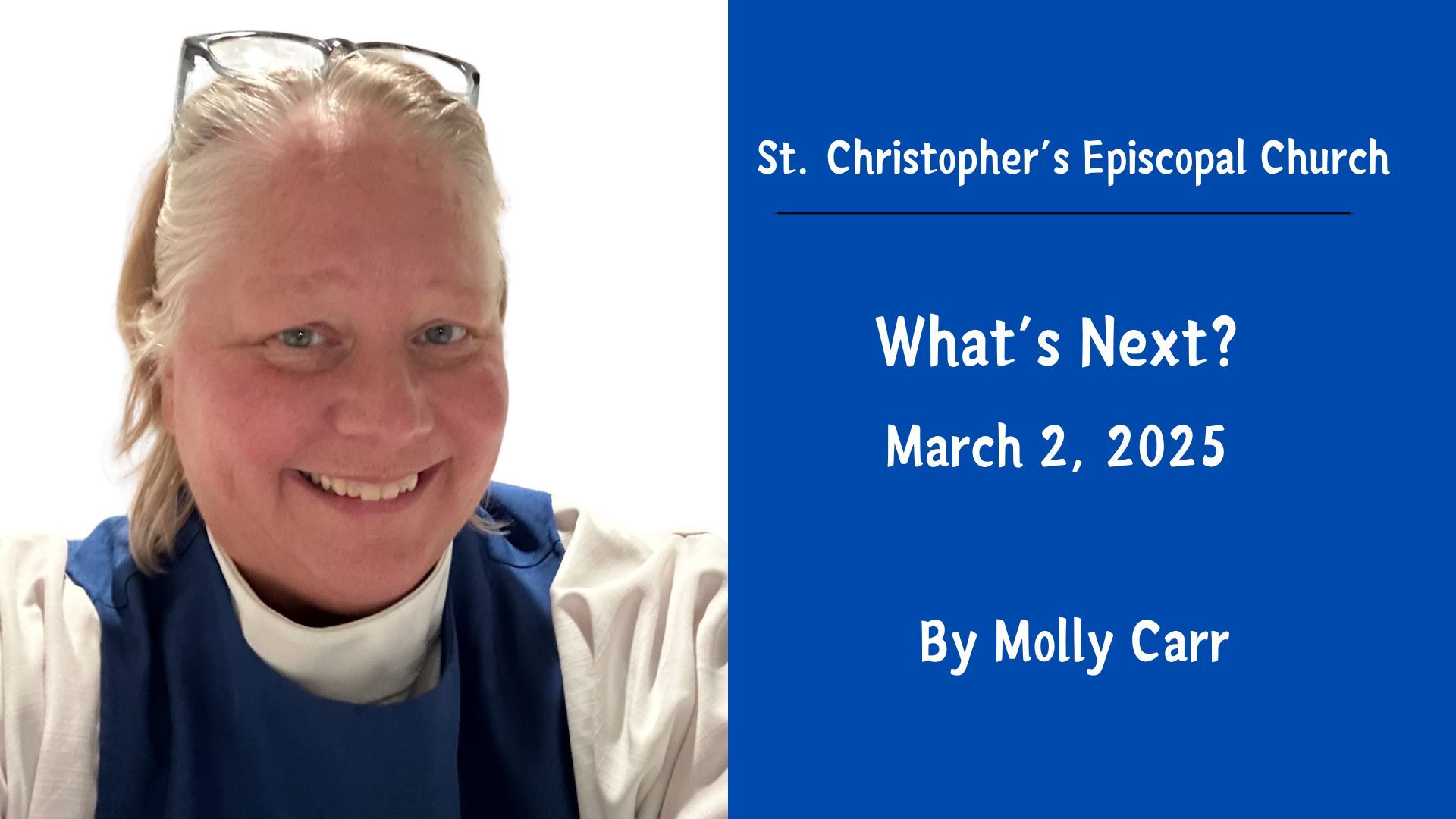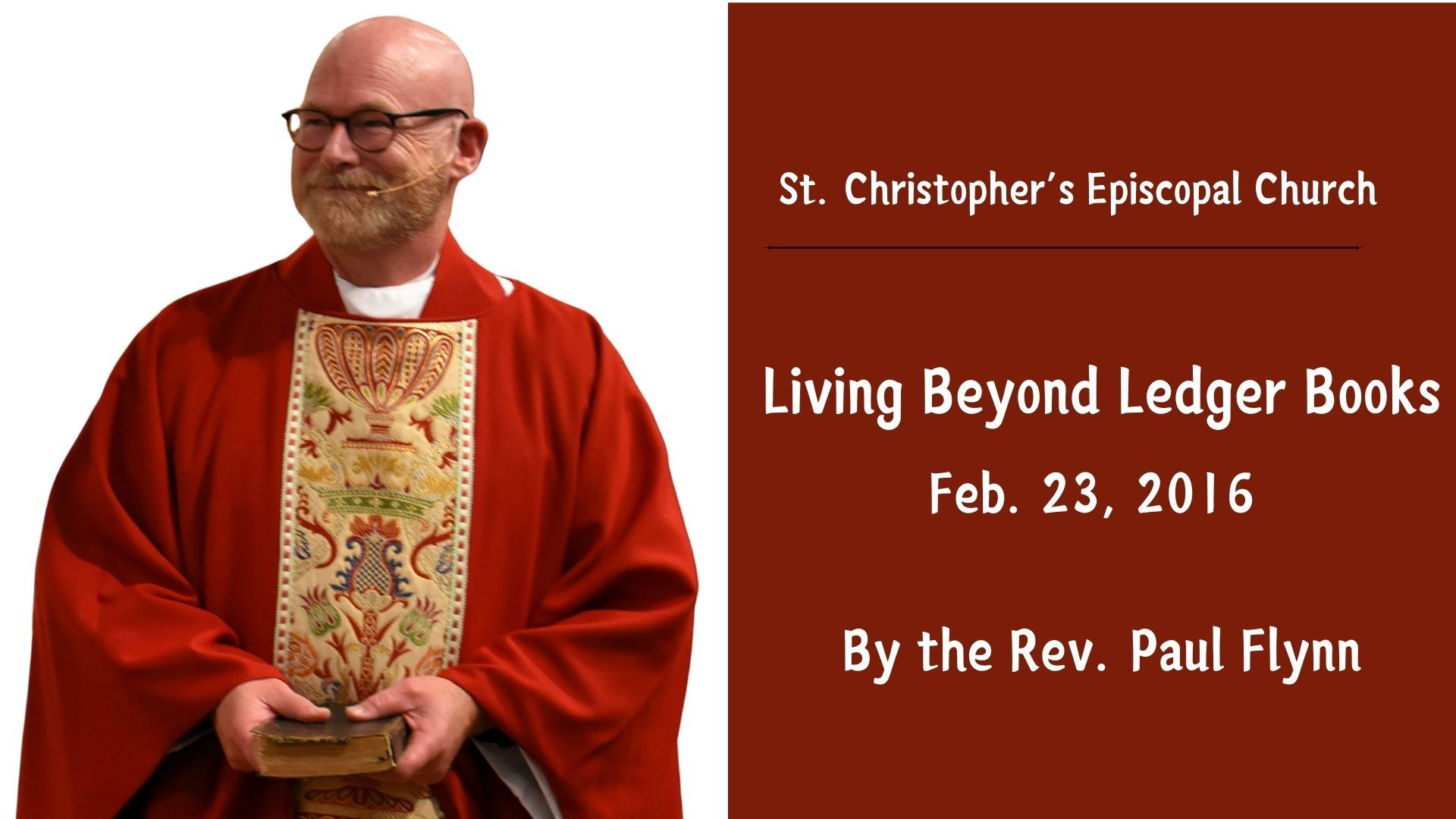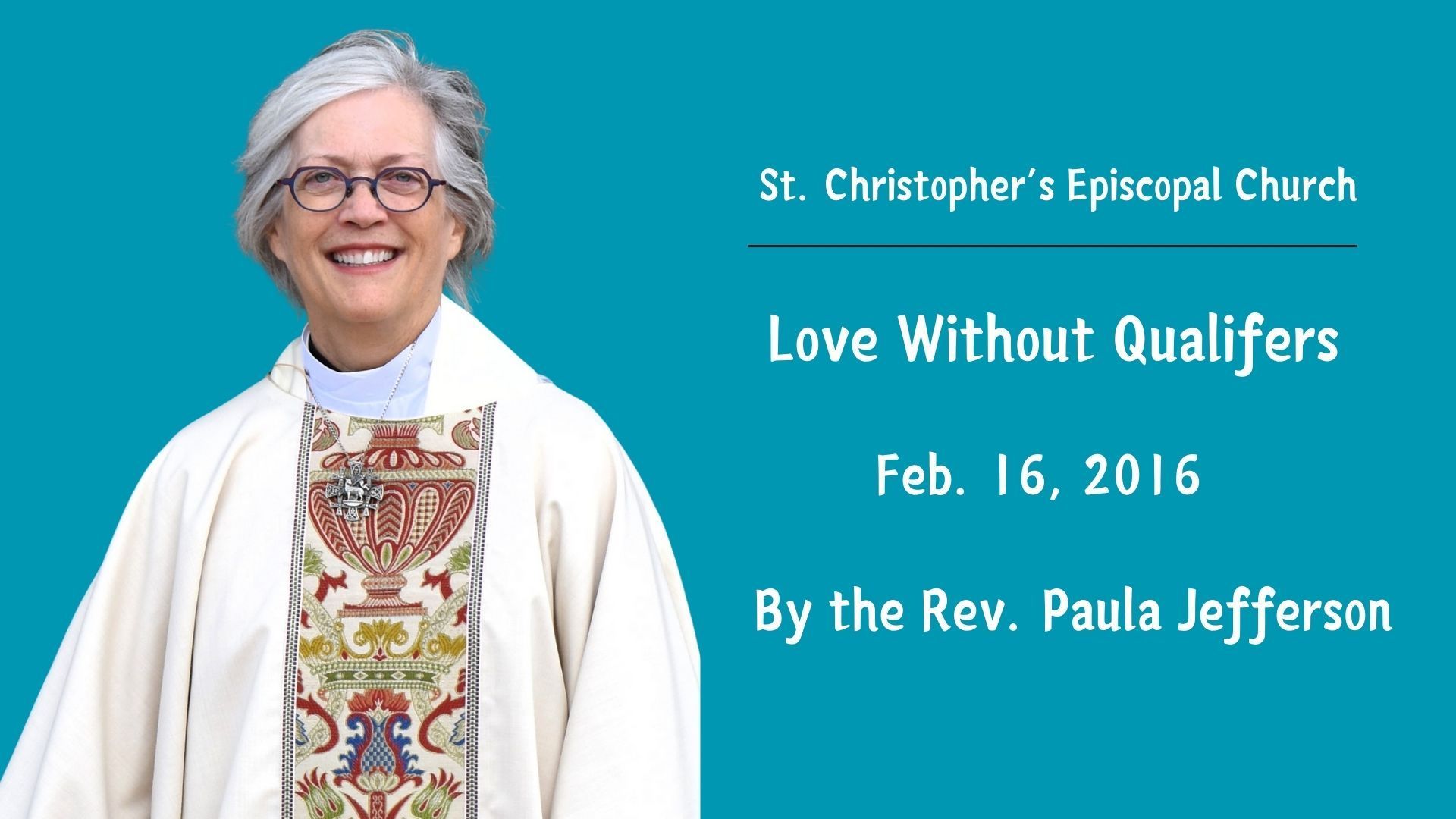Last Sunday, I departed north central Pennsylvania and began the journey home. Fifteen hundred miles is a long way, and a lot of driving time to reflect on today’s readings. My thoughts kept coming back to the Romans text and, particularly, to the meaning of sin as Paul understood it.
I grew up in a different denomination. My Sunday School lessons were often centered around the many things that could lead me directly to Hell. There were the 10 commandments, of course, but that was just the beginning. Lying, cheating, stealing, copying someone’s homework, drinking (at least in public), and on and on. A lot of attention was paid to the idea of sin. It was as if God had a giant clipboard where each transgression I committed was recorded for eternity.
But, this notion of sin doesn’t resonate with Paul’s writing.
Barbara Brown Taylor is one of my favorite preachers and writers. She has a way of saying things that is often direct and unexpected. Thirty years ago, she wrote a great little book titled “Speaking of Sin: the lost language of salvation”. In the book, she digs deeply into the meaning of sin through the lens of the Hebrew Bible, the Bible that Paul knew.
There are three words used in the Hebrew Bible to describe sin. Barbara noticed that all three of these words share a common thread. In the Hebrew tradition, sin meant going against God’s will—or being out sync with God. These are her words:
“In theological language, the choice to remain in wrecked relationship with God and other human beings is called sin. The choice to enter into the process of repair is called repentance…”[1]
That definition shines some light on what Paul is saying to the church in Rome and to us.
Paul draws the short straw in the field of first century evangelism.
The other apostles and disciples will spread the Gospel message to people who expect a Messiah…people who expect God to be engaged in their particular lives…people who expect to hear prophetic messages.
But, Paul is sent to the Gentiles…to us.
'
He preaches to people who do not have the Hebrew Bible memorized: people who do not know that a Messiah was foretold, people who do not have a history of prophets calling them back into righteous relationship with Yahweh.
As he grows in ministry, Paul comes to deeper understanding of the Mystery of Incarnation and Paschal Mystery… a theology that interprets the birth, death and resurrection of Christ. Romans is his last letter…and Paul is laying down all of his theological cards, face up. He’s out of time. And he wants us to “get it”.
To the church in Rome, he says: ‘Those who have been baptized into Christ must no longer let sin have dominion over them’. Or to say it with Barbara Brown Taylor’s words, “those who have been baptized into Christ must no longer live in wrecked relationships with God and other human beings”.
I don’t know about your life, but mine has its own graveyard of broken relationships. Our community is brimming with wrecked relationships caused by political divisions, injustice, poverty, and fill-in-the-blank.
Jesus told us to love our neighbors as ourselves. It’s not going well.
If we aren’t going to let wrecked relationships have the last word then, Taylor says, repentance comes by our choice to enter into the process of repairing broken relationships.
By the time I got to Kentucky on Monday, I was beginning to think about the ways in which St. Chris is working to repair relationships right here in Fort Worth, Texas.
The first connection I made was Laundry Love. One Saturday a month, this ministry helps more than 35 families have clean clothing for school, jobs, and clean pajamas. Last month, I visited with a mom who had spent more than an hour on city buses—with her laundry and three kids in tow—to come to us. There is no other Laundry Love in all of Tarrant County. Every client at Laundry Love knows there are people in this world who care about them—who want to know them by name—who will help them reach for a better path forward.
The second connection I made was the Christofolx gathering last Sunday evening. A dozen people walked the streets where Fred Rouse was attacked and lynched 100 years ago. They listened to the story told by Mr. Rouse’s grandson. I watched our group post comments on Facebook after the evening. And I knew that Mr. Rouse’s life held new meaning for every person who walked in his footsteps. Folks were changed by the experience.
The third connection I made was our outreach work through the lives of people in our congregation. We have begun volunteering monthly at 4Saints Food Pantry—an Episcopal ministry of several congregations feeding hundreds of families every month. We have volunteers who routinely work at Union Gospel Mission. We have parishioners who support Brite Divinity, the Butterfly Society, and on and on.
What I love about each of these examples is that our engagement with poverty and injustice is not just about writing a check and driving to the post office to mail it. We are involved in our community. We come face to face with those who are suffering in ways we cannot imagine. We accept vulnerability: a willingness to be changed by the needs of our neighbor.
Paul desires for us a life of flourishing….of becoming the very person God created us to be. It begins with our Baptism—but it does not end there. And that is his point.
In Baptism, we are grafted into the life of Christ. Through our life experiences, our roots grow more deeply into God’s soil. And then our lives bear fruit that is God’s fruit: Love, Hope, Joy, Light.
We, the Body of Christ, are exactly what our world needs.
Each week, we gather here to worship and to share a Holy Eucharist. And then together we offer a prayer that my friend Fr Ron calls “The prayer of Christian discipleship”.
Eternal God, heavenly Father,
You have graciously accepted us as living members of your Son our Savior Jesus Christ, and you have fed us with spiritual food in the Sacrament of his Body and Blood. Send us now into the world in peace, and grant us strength and courage to love and serve you with gladness and singleness of heart; through Christ our Lord. Amen.
[1] Speaking of Sin: the lost language of salvation; Barbara Brown Taylor; p58
St. Christopher's Episcopal Church
5709 Wedgwood Dr., Fort Worth, TX 76133
St. Christopher's is part of The Diocese of Texas, a diocese of The Episcopal Church.
© 2023 St. Christopher's Episcopal Church
SERVICE TIMES
CONTACT US
Mailing Address:
P.O. Box 34971
Fort Worth, TX 76162
817-926-8277
Email: office@stchrisfw.org



